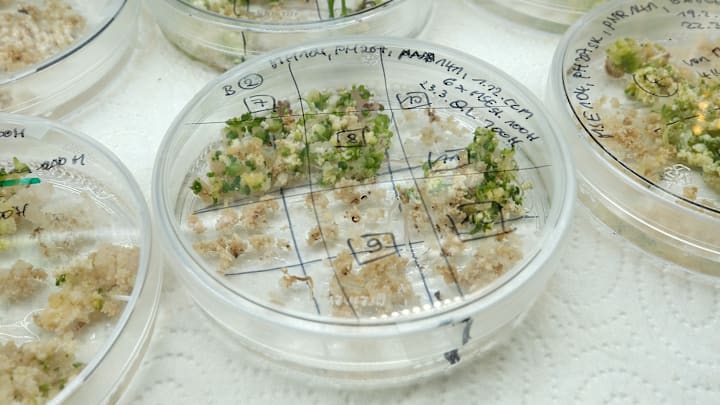CRISPR-Cas9: Revolutionizing Gene Editing with Precision

The CRISPR-Cas9 system has revolutionized the field of genetic engineering, offering a powerful tool for precise gene editing. Developed from a bacterial defense mechanism, CRISPR-Cas9 allows scientists to make targeted changes to the DNA sequence of organisms, including plants, animals, and humans, with unprecedented accuracy and efficiency.
The CRISPR-Cas9 system consists of two key components: a guide RNA (gRNA) that directs the Cas9 protein to a specific location in the genome, and the Cas9 protein itself, which acts as molecular scissors to introduce a double-strand break at the targeted site. This break can then be repaired by inserting, deleting, or modifying genetic material, allowing for precise genetic modifications.
Recent advances in CRISPR technology have expanded its applications and improved its efficiency. Researchers have developed CRISPR variants with enhanced specificity to minimize off-target effects and increase the precision of gene editing. Additionally, the development of CRISPR-based gene drive systems has the potential to address issues such as vector-borne diseases by altering the genetic traits of populations of organisms.
In medicine, CRISPR-Cas9 holds promise for treating genetic disorders by correcting disease-causing mutations at the molecular level. Clinical trials are underway to explore the potential of CRISPR-based therapies for conditions such as sickle cell disease, muscular dystrophy, and cystic fibrosis. Moreover, CRISPR technology is being used to engineer immune cells for cancer immunotherapy, enhancing the ability of the immune system to target and destroy cancer cells.
However, the widespread use of CRISPR technology raises ethical and safety concerns. Issues related to germline editing, potential unintended consequences, and equitable access to gene-editing therapies must be carefully considered and regulated to ensure responsible use of the technology.
In conclusion, CRISPR-Cas9 represents a groundbreaking advancement in gene editing, offering the potential for significant scientific and medical breakthroughs. As research continues to refine the technology and address ethical considerations, CRISPR-Cas9 has the potential to transform various fields, from agriculture to medicine.